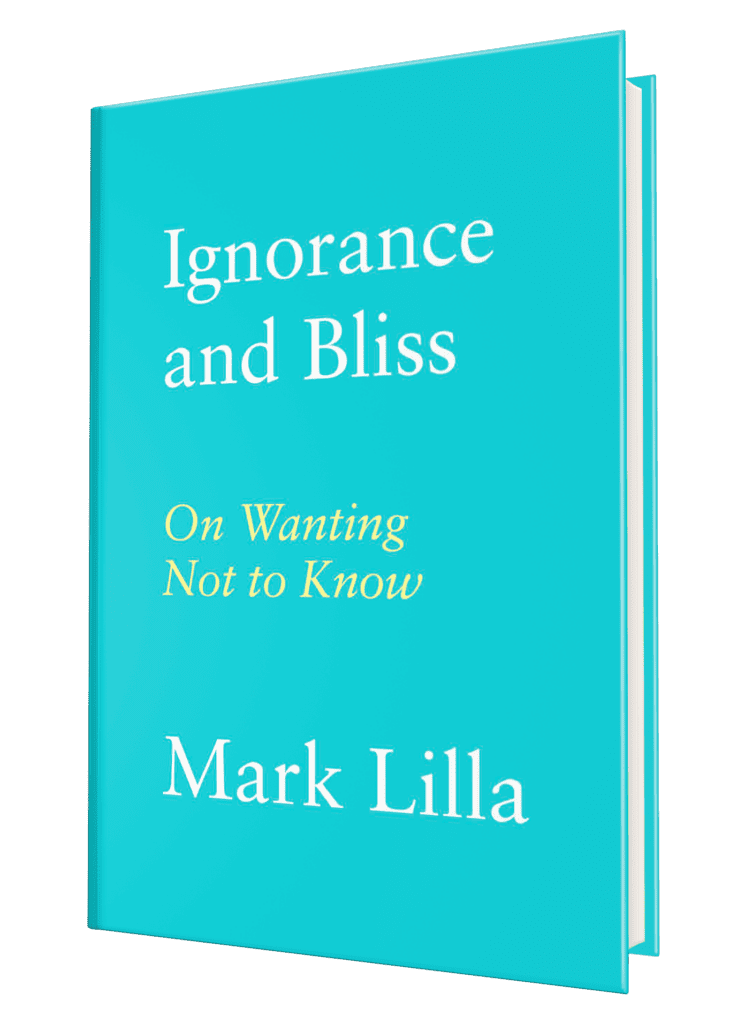If there's a great mystery in the history of ideas, it lies in where the blind spots of thought are encountered. However, this raises the question of precisely what conditions lead to such blind thinking. When Mark Lilla, a professor of humanities at Columbia University whose work has delved deeply into the history of political theology, prefaces his book Ignorance and Bliss with the motto of an English Writer: »The faintest of all human passions is the love of truth,« he's highlighting the underlying dilemma: that the love of truth pales in comparison to other passions. And because he’s somewhat surprised this fact has received comparatively little attention in the history of philosophy—with the exception of Nietzsche—in his latest book, Lilla turns to the psychology of the present-day obliviousness, characterizing various paradigms within which the will to ignorance has found expression. Looking around at our present, we're confronted with countless varieties of blissful ignorance, making our conversation with him all the more rewarding as an in-depth exploration of a terrain that's received little attention.
After working as an editor at The Public Interest and holding professorships at New York University and the University of Chicago, Mark Lilla became a professor of humanities at Columbia University in 2007. He regularly writes for the New York Times and New York Review of Books, among many other publications.
Recent Publications
Related Content
Talking to ... Catherine Liu
Imagining the Boomer world straying into suffocating moralism during the Pop Revolution would have seemed like a grotesque, if not outright ridiculous, mind game. Actually, it is a first-order puzzlement how such a terror of virtue could take hold of our political discourse and institutions. It is precisely this question that cultural theor…
The Sleep of the World
After one of his first lectures on the unconscious, Freud made the beautiful observation he’d encountered such emphatic silence from the audience that it was as if he’d stirred the sleep of the world. This formulation describes a social condition where the World’s collective
The Logic of the Dividual
On the Logic of the Dividual [Zur Logik des Divduums] was written in 2016, after Martin published Alles und Nichts with Dirk Höfer and finished his science fiction novel Score in 2015. This was a very productive time for him as he’d turned his attention to writing a history of digitalisation series for the
Postmodern Demonology
If, when reflecting on the fatalities of today's culture wars, with its encroachments and infringements by self-appointed language police, we're reminded of George Orwell, of his logic of Oldspeak and Newspeak, thoughtcrime and the Ministry of Truth, it's no coincidence. Like few others before him, Orwell grasped the abysses of totalitarian thinking. He…























Share this post